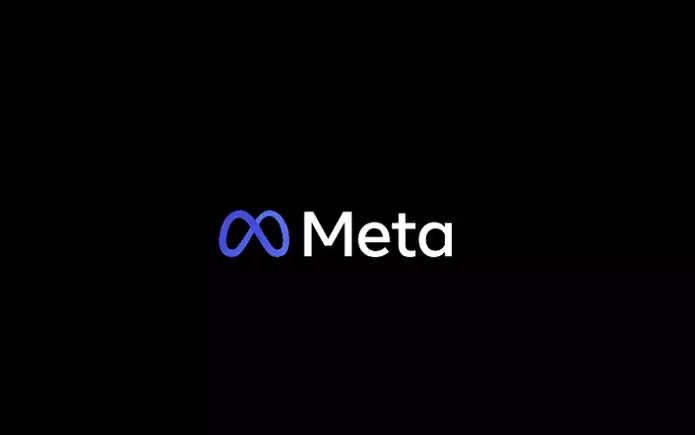Meta, the parent company of Facebook, Instagram, and other social media platforms, has sought to position itself as a staunch opponent of political divisiveness and misinformation. Yet, within this narrative lies a complexity that belies their public intentions. Recent reports have surfaced showcasing a disturbing prevalence of politically charged misinformation proliferating across Meta’s platforms, linking the very applications designed to create social connection with harmful content focused on deception and manipulation.
In an age where information travels faster than the speed of light, Meta’s challenges are emblematic of broader societal concerns surrounding the use of social media in politics. In light of this contradiction, we must critically examine Meta’s strategies, their effectiveness, and the larger consequence of their actions—or inactions—in this delicate realm of political communication.
In the wake of upcoming elections, Meta’s platforms are witnessing a surge in ads promoting dubious narratives and outright falsehoods. Forbes recently highlighted a series of ads that not only infringe upon Meta’s own guidelines but also exemplify a blatant disregard for factual integrity. Illustrative images of Vice President Kamala Harris, among others, have circulated in politically sensational formats, aimed not at informing the voter populace but rather at inciting skepticism and fear.
This isn’t the first time Meta has found itself ensnared in controversy; previous election cycles saw the dissemination of misleading information, often attributed to foreign actors exploiting the platforms’ expansive reach. The 2016 election serves as a watershed moment, drawing the attention of Congress to the ways in which these tools could be hijacked to undermine democratic processes. Although Meta’s leadership has stated a commitment to reducing the spread of misinformation, the implementation of these values has been inconsistent at best.
In an apparent attempt to distance itself from its politically charged past, Meta has made strategic shifts, including the dismantling of its dedicated news section and the cessation of partnerships with news publishers. The company has publicly proclaimed a commitment to refocusing on engaging and entertaining content over divisive political discussions. However, one must question the sincerity of these assertions. Is this an authentic effort to create a healthier online environment, or merely a public relations maneuver designed to placate critics and regulators?
The disconnect between Meta’s rhetoric and the reality of political content on its platforms plays into a broader pattern common among technology companies: an unwillingness to impose strict regulations on user-generated content. While Meta aims to reduce political expressions, it simultaneously relies on user engagement for monetization. This paradox poses an unsustainable situation where the pressure to drive ad revenue may inevitably compromise the integrity of the communication environment.
To dismiss political discussions entirely is an unrealistic expectation as such matters are deeply ingrained in public discourse. As Meta continuously grapples with user feedback that advocates for a less politically charged environment, it also identifies political content inherently tied to societal interests. The tension lies in the understanding of what constitutes “political” and how that definition is fluid, influenced by external sociopolitical dynamics.
The company’s attempt to sidestep engagement with controversial topics poses a challenge, particularly for its latest platform, Threads, which aims to replicate real-time conversations akin to Twitter. The nature of social media encourages discourse around all subjects, including politics. Attempting to govern, or even mute, these conversations appears counterintuitive and is likely to alienate users who seek genuine engagement on pressing societal issues.
Meta’s vague parameters surrounding “political content” lend themselves to bewilderment and arbitrary enforcement. This ambiguity could potentially hinder their efforts to foster a healthier information ecosystem. While ongoing adjustments to their policies reflect a responsive approach to user concerns, they must also strive for transparency and clarity. Users deserve a more intuitive framework that delineates the boundaries of permissible content without compromising open dialogue.
As the company edges closer to the next electoral cycle, it would be prudent for Meta to openly engage with experts and communities to refine these definitions while considering the implications that rigid restrictions might have on user engagement and trust. The path towards a more constructive discourse requires active participation, not just rules aimed at avoiding scrutiny.
Meta stands at a crossroads. The persistent entanglement of misinformation and political discourse presents both a challenge and an opportunity for transformation. While their initiatives towards fostering a less divisive atmosphere are commendable, the reality remains that complete detachment from political matters is neither feasible nor desirable. Instead, Meta must embrace the complexity of these discussions and actively participate in creating informed dialogues.
As a steward of vast social engagement, Meta has a unique responsibility to uphold democratic principles in the digital age. The time has come for it to reconcile its actions with its stated values and navigate the political minefield with more transparency and responsibility. To neglect these considerations is to jeopardize the very social fabric that binds its global user base together.

